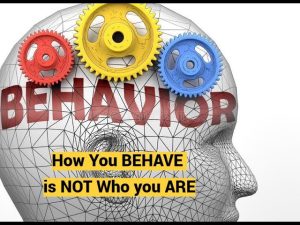Anticipate and Preempt? Not Always Healthy!
Narcissism and Contempt
- Narcissists feel superior by holding others in profound contempt, which functions as a psychological defense that allows them to feel invulnerable and immune to criticism or harm. Contempt acts as a shield that devalues others, making them unable to inflict injury or mortification on the narcissist, thus maintaining the narcissist’s inflated self-esteem ([00:00] – [06:00]).
- Narcissists may choose contempt over seeking narcissistic supply, knowingly isolating themselves in order to sustain their feeling of superiority ([02:00]).
- Contempt is an anticipatory mechanism driven by anxiety about rejection, humiliation, and narcissistic collapse ([04:30]).
Preemptive and Anticipatory Psychological Mechanisms
- Preemptive contempt is a reactive strategy to avoid injury by demeaning others beforehand ([02:00]).
- Anticipatory anxiety in narcissists leads them to employ contempt to prevent potential narcissistic injury ([04:30]).
- Anticipation is linked to other psychological defense mechanisms like reaction formation, where a person preemptively acts opposite to a feared or despised aspect of themselves (example: homophobia as a reaction to latent homosexuality) ([13:20] – [15:30]).
- Preemptive abandonment reflects fears of rejection seen in disorders like borderline personality disorder, where individuals abandon others before being abandoned to reduce emotional pain ([16:50] – [20:30]).
- Anticipatory aggression occurs when individuals become aggressive preemptively in situations where aggression is likely, to protect themselves ([21:00]).
Risk Aversion and Avoidance of Life
- Fear of death and risk can cause people to severely limit or constrict their lives, leading to a symbolic or behavioral form of “unaliving,” a state of diminished vitality and engagement with life ([07:30] – [10:30]).
- Extreme risk aversion often results in isolation or withdrawal (as in agoraphobia), and in rare cases, suicide as an ultimate avoidance of risk ([21:30] – [24:00]).
- These avoidance strategies paradoxically lead to the very negative outcomes they aim to prevent, such as social isolation or emotional pain ([25:30]).
Catastrophizing and Self-Fulfilling Prophecies
- Catastrophizing is a cognitive bias involving exaggerated negative predictions that increase anxiety and maladaptive behaviors, often resulting in the feared outcomes occurring ([28:00] – [31:30]).
- These fears and anticipations function as self-fulfilling prophecies, where expectations shape behaviors that bring about the predicted events ([31:00] – [33:30]).
- Behavioral confirmation and expectancy effects explain how individuals’ expectations influence both their own and others’ behaviors, reinforcing social and personal realities ([32:30] – [36:30]).
Summary of Psychological Insights
- Anticipation and preemptive behaviors, while intended to protect, often lead to constricted lives and adverse outcomes such as isolation, emotional injury, or “unaliving” ([34:00] – end).
- These mechanisms are especially detrimental in individuals with mental health vulnerabilities, including narcissistic personality disorder and borderline personality disorder.
- The meeting emphasized the paradox where attempts to avoid pain or risk reinforce and create the feared experiences.
This detailed summary reflects the key thematic segments of the meeting with time references for specific ideas as discussed throughout the transcript.






